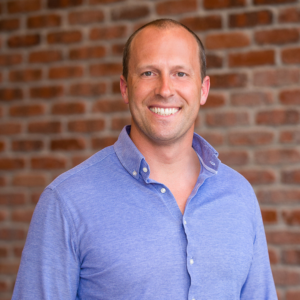The recent slowdown in venture funding has shifted the way founders are approaching VCs and vice versa. Deal flow has slowed dramatically and VCs are being especially mindful around what investments they choose to make and why.
Only a few months ago, founders were raising at a frantic pace (and spending that way too). Now, the focus has shifted from growth to preservation, and funding is being used to shore up balance sheets and extend runways for at least two years. For startups that happened to time this cycle poorly, their founders are faced with difficult propositions and challenges.
Search less. Close more.
Grow your revenue with all-in-one prospecting solutions powered by the leader in private-company data.
My advice to these founders is it’s better to take a down or flat round in order to withstand the recession that is likely coming. That comes with a lot of consequences, so in the very worst case I advise founders to “fail gracefully” so they’re able to preserve their investor relationships and start preparing for the next wave.

The news headlines seem to reflect some of the opposite dynamics — the deals are continuing at a rapid pace and startups are able to secure continued funding. This is only partially true. VCs are triaging their value drivers, so the deal flow we are seeing is from VCs looking to protect their portfolio darlings by allocating enough cash to extend their runways and ensure their longevity. In classic VC fashion, these rounds have created a gravity that funds “standing by the hoop” wish to follow.
So in some sense, yes, deals are continuing but the broad allocations that were commonplace just a few months ago have come to a grinding halt. This has created a tale of two cities for startups; those which VCs wish to protect remain insulated with strong runways while all of the other startups on the roster are left with few options. Over the last few months we’ve seen many of the portfolio winners secure that protection, so most VCs are now in “wait-and-see” mode before reshifting their focus to new deals.
What’s ahead
If positive signs in the economy take more than six months to a year to manifest, we are going to see significant desperation in the market as startups start running out of cash. There might be a sweet spot window in there for VCs if that desperation closely coincides with an economic turnaround, but whether or not that comes to fruition remains to be seen.
If we experience a protracted slowdown, I expect to see layoffs and an increasing number of startup failures as cash runs out and VCs remain unready to deploy fresh capital into new deals. With their winners insulated, they may be incentivized to let portfolio companies on the fringes fail in order to preserve their capital for the next sign of life from the economy.
Like every VC, I hope we don’t see that day come, but it’s possible. The most likely scenario is that we see a brief window where great startups are on sale and the smart VCs are able to step in and secure lucrative equity at a deep discount. Historically, this is where the best VCs have risen to the top.
Marc Schröder is the managing partner and co-founder of MGV, and is focused on working with world-class tech entrepreneurs and establishing the MGV legacy. Before co-founding MGV, Schröder served as the head of global sales at the Maschmeyer Group and was an investor at Seed + Speed Ventures. Originally from the Netherlands, he grew up in South Africa and graduated with a law degree from Bertolt-Brecht University.
Illustration: Dom Guzman

Stay up to date with recent funding rounds, acquisitions, and more with the Crunchbase Daily.












67.1K Followers